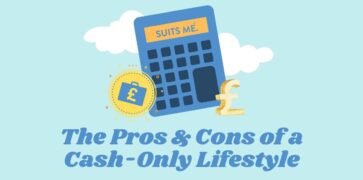Blog

Top 10 Money Saving Tips in 2024
Once Christmas is done and dusted, many of us will have resolved to cut back in some way or another, but then we are bombarded with January sales and ‘further reductions’ on…
2 days ago
Read more
Pros and Cons of a Cash Only Lifestyle
Discover the pros and cons of using only cash to pay for your daily living expenses.
6 days ago
Read more
How long does information remain on your credit record?
We discuss how long information remains on your credit score and what you can expect if you miss a payment.
6 days ago
Read more
Can I transfer money from a credit card to a debit card?
The good news is that you can transfer money from a credit to a debit card, but there are some things you will need to consider
6 days ago
Read more
How to Calculate Your Net Worth?
Here’s how you can calculate your net worth to help you plan and prepare for your financial future!
6 days ago
Read more
Introducing our Theme Park Ticket Giveaway!
As always we will be running our competitions this month, this month’s prize is a family ticket (4 people) to ONE of the following: To enter, all you need to do is:…
6 days ago
Read more
Standing Orders vs Direct Debits: The Facts
Direct Debits & Standing Orders are Both Automated Payment Methods – But What’s the Difference? & Which Should you Choose When Setting up a Recurring Payment?
6 days ago
Read more
Standing Orders vs Direct Debits: Which One Should I Choose?
When it comes to setting up regular payments, there are two main options open to You: Standing Orders & Direct Debits – but which one should you choose?
7 days ago
Read more
9 Essential Rules of Personal Finance That You Should Follow
Managing, budgeting and saving money is certainly no easy task – discover the essential rules of personal finance that will make your life easier and your money last longer
7 days ago
Read more